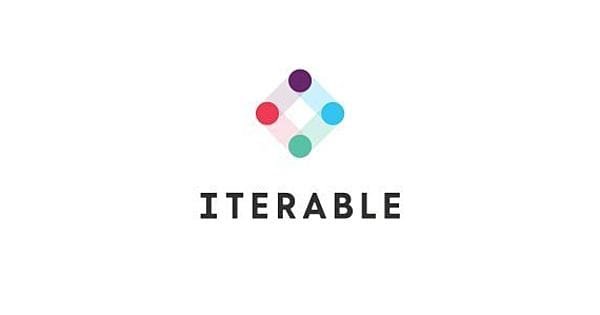In the vibrant world of digital marketing, selecting the right email marketing tool is akin to choosing a trusty sidekick on your adventure to success. It’s a decision that can shape the trajectory of your marketing efforts. Today, we’re focusing on two formidable contenders in this arena: Emma Email Marketing Tool and Iterable. Both offer unique strengths, but which one is the ideal match for your marketing goals? Let’s start peeling back the layers of these tools, beginning with a critical area of comparison.
| Emma Email Marketing Tool | Iterable |
|---|---|
 |  |
| G2 Score – 4.0 out of 5 stars | G2 Score – 4.4 out of 5 stars |
| TrustRadius Score – 8.6/10 | TrustRadius Score – 8.6/10 |
User Interface and Experience
Emma’s Intuitive Simplicity vs Iterable’s Dynamic Versatility
The interface of an email marketing tool is your command center. It’s where ideas take shape and campaigns come to life. Let’s compare Emma and Iterable in terms of their user interface and overall user experience.
Emma: The Epitome of User-Friendliness
Emma is celebrated for its straightforward, intuitive interface. It’s designed with the user in mind, making it an excellent choice for both email marketing novices and seasoned professionals. As you step into Emma’s world, you’re greeted with a clean, uncluttered dashboard that simplifies navigation and makes it easy to get your campaigns off the ground.
The platform’s email builder is a testament to its commitment to simplicity. With an easy-to-use drag-and-drop editor, Emma enables you to create visually appealing emails without needing extensive design expertise. The array of customizable templates serves as a creative springboard, allowing you to craft emails that resonate with your brand’s identity effortlessly.
Moreover, managing your contacts in Emma is a breeze. The platform allows you to import, organize, and segment your subscriber lists without any complications. This ease of managing contacts is crucial for executing targeted and efficient email campaigns.
Iterable: Catering to the Dynamic Marketer
Iterable, in contrast, offers a more dynamic user interface that caters to marketers seeking depth and versatility in their tool. While it boasts a range of advanced features, mastering Iterable’s interface might require a steeper learning curve compared to Emma. This complexity, however, is a gateway to a more powerful and customizable tool.
Iterable’s email builder offers a high degree of customization, catering to businesses with specific branding requirements or sophisticated marketing strategies. For those who crave control over every aspect of their email design, Iterable provides the tools to craft unique and intricate email layouts.
Additionally, Iterable excels in list management and segmentation capabilities. Its advanced features enable precise targeting based on subscriber behavior and interactions, offering a level of detail that is invaluable for personalized and data-driven email campaigns.
Email Automation and Personalization
Emma’s Targeted Approach vs Iterable’s Advanced Capabilities
The true power of email marketing lies in its ability to automate and personalize communication with your audience. Let’s delve into how Emma and Iterable enable you to harness this power, comparing their automation and personalization features.
Emma: Personalizing with Precision
Emma’s strength in email marketing comes from its ability to deliver personalized content to your audience with precision and ease. The platform provides robust tools for tailoring your messages based on various subscriber data, such as demographics, past behaviors, and preferences. This level of personalization is key in creating emails that resonate personally with each recipient.
Automation in Emma is designed for simplicity and effectiveness. You can set up automated email sequences that trigger based on specific subscriber actions or milestones. Whether it’s sending a welcome email to new subscribers or a special offer to your most engaged customers, Emma ensures your communication is timely and relevant.
The platform’s segmentation capabilities further enhance its personalization features. Emma allows you to segment your audience into distinct groups, enabling you to craft targeted campaigns that speak directly to the interests and needs of each segment, thereby increasing engagement and conversion rates.
Iterable: A Powerhouse of Automation and Personalization
Iterable takes automation and personalization to a more advanced level. The platform is designed for businesses seeking comprehensive and sophisticated email marketing strategies. Iterable’s automation capabilities are extensive, allowing for the creation of complex, multi-step workflows that respond dynamically to subscriber interactions.
The platform’s true strength lies in its ability to personalize content at scale. Iterable uses advanced data analytics to understand subscriber behavior, enabling you to create highly personalized and relevant email campaigns. This includes everything from personalized product recommendations to dynamic content changes based on subscriber actions.
Iterable’s segmentation tools are equally advanced, offering granular targeting options based on a wide range of subscriber data. This level of detail in segmentation is a significant advantage for businesses looking to create highly targeted and effective email marketing campaigns.
Pricing
Emma
- Pricing is typically tiered based on features and list size:
- Pro Plan: Offers automation, segmentation, and analytics. Pricing usually starts at around $89/month.
- Plus Plan: Includes additional features like landing pages and A/B testing. Pricing is higher and usually requires a quote from Emma.
- Enterprise Plan: Custom pricing for advanced needs like custom integrations and dedicated support.
Iterable
- Iterable does not publicly list its pricing, as it typically offers custom pricing based on the specific needs of a business.
- The platform is designed for larger companies with advanced needs in cross-channel marketing campaigns, including email, SMS, push notifications, and more.
- Features usually include workflow automation, segmentation, A/B testing, and personalized messaging.
- Interested users need to contact Iterable directly for a customized quote based on their scale and requirements.
Analytics and Reporting
Emma’s Accessible Insights vs Iterable’s Data-Driven Depth
In the realm of email marketing, the ability to analyze and interpret campaign data is crucial for refining strategies and enhancing engagement. Let’s compare how Emma and Iterable equip you with analytics and reporting tools, essential for navigating the success of your email marketing efforts.
Emma: Simplifying Data for Actionable Insights
Emma’s approach to analytics and reporting is centered around accessibility and simplicity. The platform provides essential metrics like open rates, click-through rates, and unsubscribe rates in a format that’s easy to comprehend and act upon. This user-friendly approach is ideal for businesses that need straightforward insights to guide their email marketing decisions.
The strength of Emma’s analytics lies in its ability to present data in an intuitive manner. You don’t need extensive data analysis skills to understand the reports. Emma simplifies the process, making it easier for you to track campaign performance and understand subscriber behavior quickly.
Emma also includes A/B testing capabilities, enabling you to test different elements of your emails to determine what resonates best with your audience. This feature is crucial for continuously improving your strategy and maximizing the effectiveness of your email campaigns.
Iterable: Comprehensive Analytics for Informed Decisions
Iterable takes a more in-depth approach to analytics and reporting, catering to businesses that require detailed insights into their email marketing campaigns. The platform provides a suite of advanced analytics tools that deliver comprehensive data on every aspect of your email marketing efforts.
With Iterable, you can dive deep into the specifics of your campaigns, analyzing everything from individual email performance to the broader impact on customer behavior and sales. This detailed analysis is invaluable for businesses that base their marketing strategies on data-driven insights and want to optimize every element of their email marketing for maximum impact.
Iterable’s reporting tools are designed for customization, enabling you to create tailored reports that focus on the metrics most relevant to your business goals. This level of customization and depth is a significant advantage for businesses with specific reporting needs or those that want to align their email marketing metrics closely with broader business objectives.

Related: Check out our free SEO suite

Integration and Scalability
Emma’s Smooth Synchronization vs Iterable’s Extensive Connectivity
In the rapidly evolving world of email marketing, the ability of a tool to integrate seamlessly with other business systems and scale in tandem with your business growth is not just a convenience, it’s a necessity. Let’s delve deeper into how Emma and Iterable stand out in terms of integration capabilities and scalability.
Emma: Harmonizing Marketing Efforts with Ease
Emma’s approach to integration focuses on creating a harmonious relationship between various marketing tools and platforms. The platform is designed to effortlessly synchronize with a range of commonly used systems, including CRM software, e-commerce platforms, and social media channels. This seamless integration plays a pivotal role in streamlining your marketing processes, ensuring that data flows effortlessly between Emma and other tools in your marketing arsenal.
The integration capabilities of Emma are particularly beneficial for businesses looking to create a cohesive marketing strategy. By allowing data to be shared and utilized across different platforms, Emma helps in crafting more targeted and effective email campaigns. This synchronization ensures that your marketing efforts are not operating in silos but are part of a well-orchestrated strategy.
In terms of scalability, Emma shows its strengths in adapting to the growing needs of businesses. As your subscriber base increases and your marketing requirements become more complex, Emma’s platform is capable of handling this expansion. This scalability is crucial for businesses in growth phases, ensuring that their email marketing tool remains effective and relevant.
Iterable: Catering to a Wide Array of Marketing Needs
Iterable, on the other hand, takes a more extensive approach to integration. The platform is built to connect with a broad spectrum of marketing, sales, and productivity tools. This extensive connectivity is a testament to Iterable’s commitment to providing a comprehensive solution that fits into any marketing tech stack.
Iterable’s robust integration capabilities are a boon for businesses that use a variety of tools to manage their marketing and sales activities. The ability to integrate with CRM systems, e-commerce platforms, analytics tools, and more, makes Iterable a highly versatile platform. This versatility is key for businesses that rely on detailed data analysis and cross-platform synchronization to inform their marketing strategies.
Scalability is another area where Iterable excels. The platform is designed to accommodate the increasing complexities of growing businesses. Whether it’s expanding subscriber lists, more sophisticated segmentation, or advanced automation needs, Iterable is equipped to handle the scaling demands of dynamic businesses.
Conclusion
In conclusion, when it comes to choosing between Emma Email Marketing Tool and Iterable, the decision largely hinges on your specific business needs, the complexity of your marketing strategies, and the level of integration and scalability you require.
Emma stands out for its user-friendly interface, ease of integration, and its focus on providing a streamlined email marketing experience. It’s particularly well-suited for businesses seeking a straightforward platform that simplifies email campaign management while offering the flexibility to grow with their needs. Emma’s approach to personalization and segmentation, combined with its user-friendly analytics, makes it an ideal choice for businesses aiming to build strong, personal connections with their audiences.
Iterable, on the other hand, is a robust choice for businesses looking for extensive integration capabilities and advanced features in their email marketing platform. Its comprehensive approach to automation, combined with detailed analytics and scalability, makes Iterable ideal for larger businesses or those with complex, data-driven marketing strategies. It’s particularly suited for businesses seeking deep customer insights and a high degree of customization in their marketing efforts.
Both Emma and Iterable offer unique advantages that can significantly enhance your email marketing strategy. Emma is preferable for its simplicity and ease of use, making it ideal for small to medium-sized businesses. In contrast, Iterable is more suited for larger businesses or those with a focus on leveraging extensive data analytics and advanced automation in their marketing campaigns.
Read Next:
- Email Marketing for the Fitness and Wellness Sector: Motivating Subscribers to Stay Healthy
- The Science Behind Effective Email Marketing: What Drives Opens and Clicks?
- Email Marketing for the Food and Beverage Industry: Whetting Appetites with Delicious Content
- Email Marketing for the Fashion Industry: Engaging Fashionistas with Trendy Content
- The Role of Analytics in Email Marketing: Understanding Subscriber Behavior






















Comments are closed.